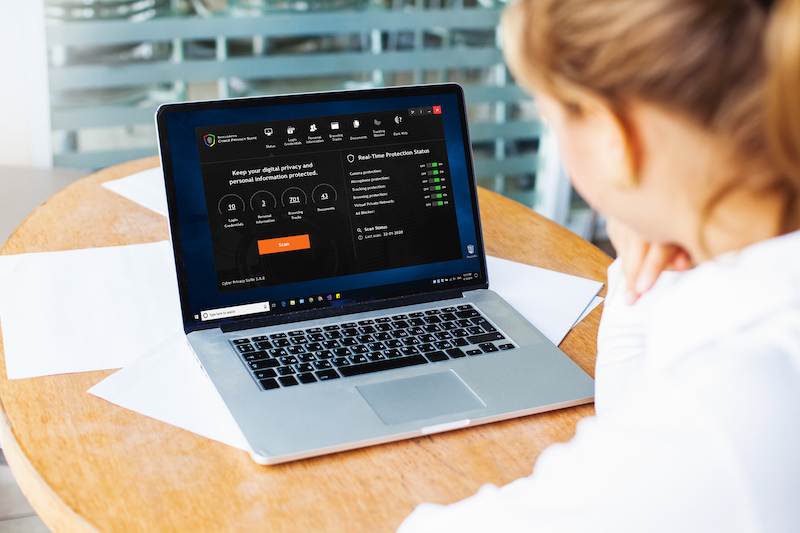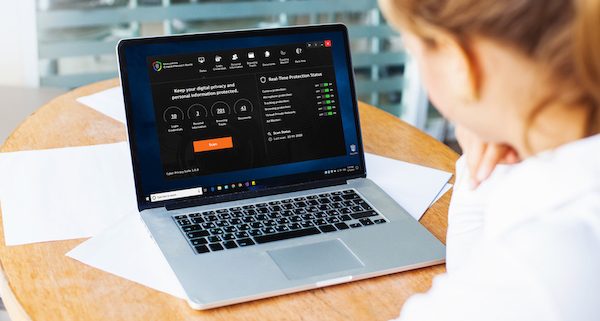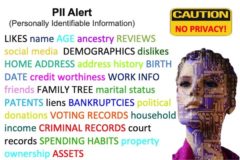Why You Must Manage Your Own Privacy
Consumer Privacy was a hot topic at the world’s largest technology conference, CES, that was held Jan. 7-10 in Las Vegas. Big companies and promising startups showed off their latest inventions to the tech world and while 8K TVs, smart devices and driverless cars were celebrated, the biggest and brightest in technology made Consumer Privacy a focal point!
Apple hadn’t been at CES for 28 years. However, they were at CES this year to talk about privacy. In fact, they participated with Facebook in a panel called “Chief Privacy Officer Roundtable: What Do Consumers Want?” Apple’s senior director of global privacy Jane Horvath spoke of putting “the consumers in the driver’s seat.” Facebook’s VP of public Policy Erin Egan said, “we build privacy by design in all of our products, just like Jane.”
Sounds great, right? There must be nothing to worry about…not so fast!
Why must we worry about our privacy if big companies are taking care of it for us?
Apple, who is publicly proud of its privacy stance, was caught last year allowing contractors to listen to commands that users gave to its voice assistant Siri. Meanwhile, Facebook paid a $5 billion fine to the FTC in 2019 for privacy violations.
Other big companies are getting in trouble as well. The security company Avast is under investigation for selling user browser histories. Amazon-owned, Ring is in hot water after incidents in which hackers broke into customers’ cameras and harassed them. A recent study also shows that Ring shared customers’ personal information with Facebook, Google and other parties without consent.
If these are supposed to be the good guys, then what are the bad guys doing?
On that panel in Las Vegas was FTC commissioner Rebecca Slaughter, who is not convinced that consumer privacy is under control. “The amount of data that is collected about any individual in this room — I don’t think anyone could tell us directly who has what data about them and how it is used,” Slaughter said.
The bottom line is, those online businesses that you love – where you shop, browse and play – are protecting themselves first, not their customers. Then there are plenty of bad guys out there trying hard to get to your data through aggressive and even malicious means.
The only one who can protect your privacy the way you want is YOU. The big question is …
What can you do to protect your privacy?
Most people would not believe how vulnerable their personal data is by just using a computer, tablet or phone every day. You may think “I already have antivirus software. I’m covered, right?” The answer is “not entirely.”
Antivirus software blocks known malware in real-time, but it doesn’t prevent identity theft, as over a third of US adults have had their identities compromised.
Identity Theft services from the likes of Lifelock, Experian and others are very valuable if you already have been breached. They identify the issues and help you get back to normal, but aren’t preventative.
There are other products that more proactively help protect your privacy.
VPNs are becoming more popular and are especially important when you are on public WIFI spots, where your personal information is very vulnerable.
Ad blockers and tracking blockers prevent aggressive advertisers from being able to gather information about you and follow you on the Web.
There are a number of password managers that give you the convenience of not having to remember passwords, while storing your passwords in a secure place.
Antivirus software, Identity Theft services, a VPN, ad and tracking blockers and password managers are a handful of the separate tools and products available for privacy protection. If this sounds like a lot of work, it doesn’t have to be.
We have developed a product at ShieldApps that brings these features and more into a single solution called the Cyber Privacy Suite.

Cyber Privacy Suite covers multiple privacy concerns in a single product
Cyber Privacy Suite takes a wholistic approach to addressing this problem, scanning for and identifying exposed passwords, credit card numbers, medical info, browser data and other critical profile data. It then encrypts what you want to protect in a click.
It also blocks the latest methods aggressive trackers use to follow you on the Web and protects you from snooping through your webcam and microphone. Plus, there’s a VPN that you can turn on in a public place and a search to see if your email address has been exposed on the Dark Web.
The bottom line is, nowadays you should be thinking about your privacy and proactively taking steps to protect it, just as naturally as you think about antivirus protection. Allowing others to decide what personal data should be fair game is not the strategy you should take. By proactively limiting what’s exposed on your devices, you can enhance your privacy and significantly reduce potential damage down the road.
———————
 Jeff Elbaum is Executive Vice President of Business Development at ShieldApps Software Innovations. Elbaum has been an executive in the consumer security software space for several years and was formerly at AOL, where he educated its members on security issues and solutions.
Jeff Elbaum is Executive Vice President of Business Development at ShieldApps Software Innovations. Elbaum has been an executive in the consumer security software space for several years and was formerly at AOL, where he educated its members on security issues and solutions.





Thanks for the helpful information, Jeff. Note to readers: Whether you use a single product like Cyber Privacy Suite or several different products to accomplish the same thing, what’s important is that you are proactively taking action to protect the private information you don’t want exposed.